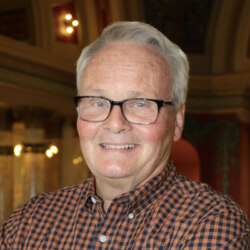Montana’s Greatest Hollywood Actor
"We remember Gary Cooper not because he was a run-of-the-mill actor but because he was uncommonly good—just like the heroes he played and the hero he was."
“He projected the kind of man Americans would like to be,” said Charlton Heston, “probably more than any actor that’s ever lived.”
The famous Moses of the big screen paid that compliment to a fellow actor born in Helena, Montana in 1901. Heston was referring to Gary Cooper, whose career in the movies spanned nearly four decades (from 1925 to 1961) and more than 80 feature films.
The Academy Award-winning Montana native is remembered for leading roles in many Westerns such as High Noon and Man of the West and in other classics like Sergeant York, Return to Paradise, For Whom the Bell Tolls and The Pride of the Yankees. In his signature “understated” acting style, he almost always played men of action and integrity who exhibited courage under fire.
Cooper’s father, incidentally, served five years on the Montana Supreme Court from 1919 to 1924. Both father and son would be known for their conservative Republican views, including an abiding love for the Constitution and individual liberty. Neither believed in activist judges who cook up new law instead of interpreting existing law, as all too many of Montana’s judges do today.
Growing up, Gary worked summers at his dad’s ranch near Craig and attended high schools in both Helena and Bozeman. A great inspiration in his early life were the paintings of Great Falls artist Charlie Russell. In Gary Cooper: American Hero, biographer Jeffrey Meyers writes that the young Cooper “admired and studied” Russell’s Lewis and Clark Meeting Indians at Ross’ Hole, which hangs in the state capitol building.
Of all 84 Gary Cooper films, my favorite is The Fountainhead (1948), based on Ayn Rand’s 1943 novel of the same title. Cooper plays a young architect named Howard Roark. The heroic Roark fights a stubborn architectural establishment that uses government to help it stamp out dreamers and their unconventional innovations. The film’s message is pure Rand and pure Cooper at the same time, distilled very well into these lines from Roark:
Look at history. Everything we have, every great achievement has come from the independent work of some independent mind. Every horror and destruction came from attempts to force men into a herd of brainless, soulless robots—without personal rights, without personal ambition, without will, hope, or dignity. It is an ancient conflict. It has another name: “The individual against the collective.”
I think of the difference between individualism and collectivism as analogous to snowstorms and snowflakes, and Gary Cooper did as well. A collectivist sees humanity as a snowstorm. An individualist sees the storm, too, but is immediately drawn to the uniqueness of each snowflake that composes it. The distinction is fraught with profound implications.
Collectivist thinking homogenizes people in a communal blender, sacrificing the discrete features that make us who we are, who each one of us uniquely is. The collectivist “it takes a village” mentality glorifies the group and vilifies or suppresses the individual. It was collectivist thinking that led President Obama to famously denigrate individual entrepreneurs by declaring, “You didn’t build that.”
Gary Cooper believed the essence of American exceptionalism is that we celebrate the individual—his or her uncommonness in particular. Historically, Americans have encouraged the uncommonly courageous, the uncommonly charitable, the uncommonly inventive and productive. Historically, we raised our children to aspire not to be “average” or “common” but to stand out from the crowd and be uncommonly good.
Something Cooper said decades ago seems even wiser advice today: “Our country is a young country that just has to make up its mind to be itself again.”
We remember Gary Cooper not because he was a run-of-the-mill actor but because he was uncommonly good—just like the heroes he played and the hero he was.
*****
Lawrence W. Reed writes a monthly column for the Frontier Institute in Helena, on whose board he serves. He is president emeritus of the Foundation for Economic Education and blogs at www.lawrencewreed.com.
